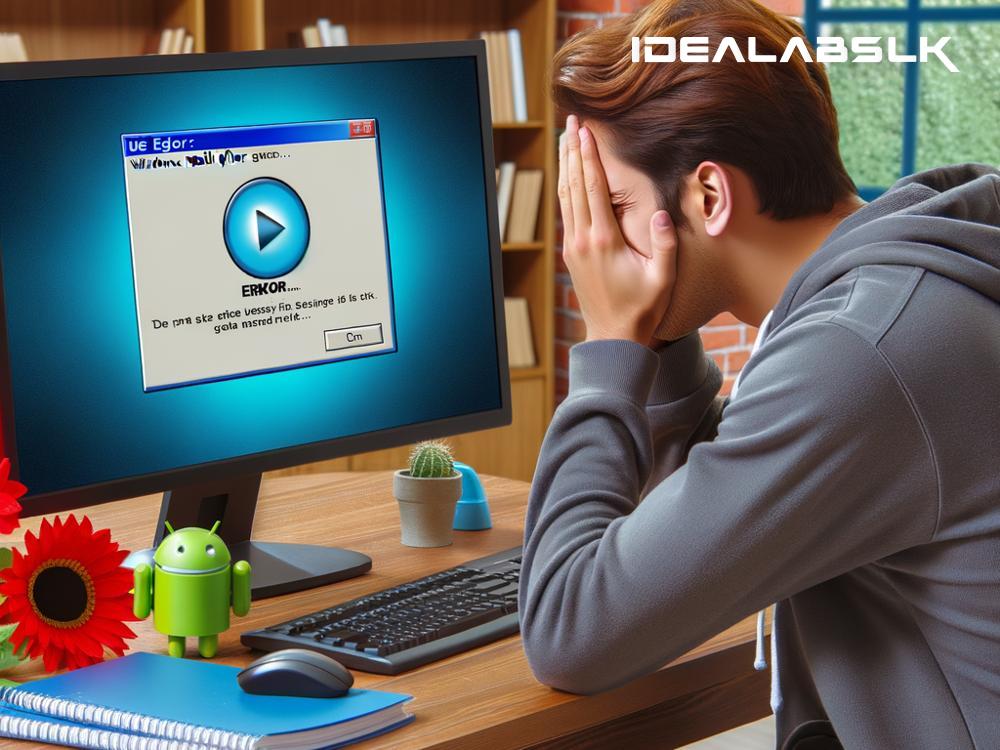Fixing the Annoying 'Windows Media Player Crashes' Problem
If you're one of those people who still cherish using Windows Media Player (WMP) for your media consumption, you're not alone. This classic application has been around for decades, providing users with an easy way to play audio and video files. However, it's not without its issues. One of the most frustrating problems that users encounter is when Windows Media Player crashes. It can happen out of the blue, often leaving you confused and annoyed. But worry not! In this article, we're going to explore some simple ways to tackle this problem and get your WMP running smoothly again.
1. Check for Updates
First things first, let's make sure your Windows Media Player is up to date. Microsoft occasionally releases updates that can fix bugs and improve performance. Here’s how you can check for updates:
- Press the Windows key, type “Windows Update” in the search box, and press Enter.
- Click on "Check for updates."
- If there are any updates available for WMP, they will be listed here and you can proceed to install them.
2. Run the Troubleshooter
Windows comes equipped with a set of troubleshooting tools designed to fix common problems. There’s one specifically for Windows Media Player. Here's how to use it:
- Open the Control Panel (you can search for it in the Windows search bar).
- Navigate to "Troubleshooting" > "View all" and then select "Windows Media Player Settings."
- Follow the on-screen instructions to let the troubleshooter do its work.
3. Turn It Off and On Again
Yes, this age-old advice can work wonders even with Windows Media Player. Disabling and then re-enabling WMP can fix the crashing problem. Follow these steps:
- Go to Control Panel > "Programs and Features."
- Click on "Turn Windows features on or off" on the left pane.
- Find "Media Features" and expand it to see "Windows Media Player."
- Uncheck the box beside "Windows Media Player" and press OK. Restart your computer.
- Follow the same steps to re-enable it. This refresh can sometimes get rid of the crashing issue.
4. Clear the Media Player Database
Sometimes the problem is with the Media Player’s database getting corrupted. Clearing it can solve the crashing problem. Here’s how:
- Close Windows Media Player.
- Press the Windows key + R to open the Run dialog.
- Type
%LOCALAPPDATA%\Microsoft\Media Playerand press Enter. - Delete all the files in this folder. This action will clear the database (don’t worry, this won't delete your media files).
5. Disable Visualizations
Visualizations are those cool graphic effects that play in sync with your music. However, they can sometimes cause Windows Media Player to crash. Try disabling them:
- Open Windows Media Player.
- Go to "Now Playing" mode, right-click on the window, hover over "Visualizations," and select "None."
6. Adjust Video Acceleration
High video acceleration settings can also cause WMP to crash, especially when playing high-definition videos. Lowering these settings can help:
- In Windows Media Player, go to "Tools" (you might need to press Ctrl+M to see the menu bar) and then "Options."
- Go to the "Performance" tab.
- Under "Video Acceleration," reduce the acceleration by moving the slider to the left.
- Click OK and restart WMP.
7. Check for Conflicting Applications
Sometimes, other applications running on your computer can interfere with Windows Media Player, causing it to crash. Try closing other programs, especially those that also play audio or video, and see if this resolves the issue.
8. Update Your Drivers
Outdated or corrupt video and sound drivers can also lead to WMP crashes. Make sure your drivers are up to date by visiting your computer or hardware manufacturer’s website and downloading the latest drivers.
In Conclusion
Windows Media Player crashes can be quite a nuisance, but with these simple troubleshooting steps, you should be able to solve the problem and get back to enjoying your media. Remember, the solution might involve a bit of trial and error, so don’t get discouraged if the first fix doesn’t work. Keep trying, and you’ll likely find a solution that works for you.
If all else fails, it might be time to consider using alternative media players like VLC or KMPlayer, which are both free and support a wide range of media formats. Happy listening/watching!

